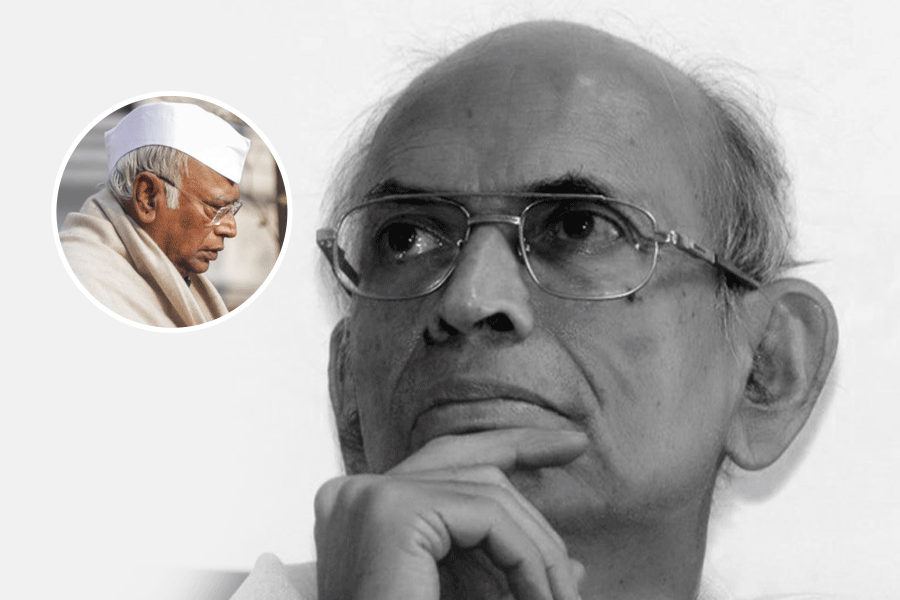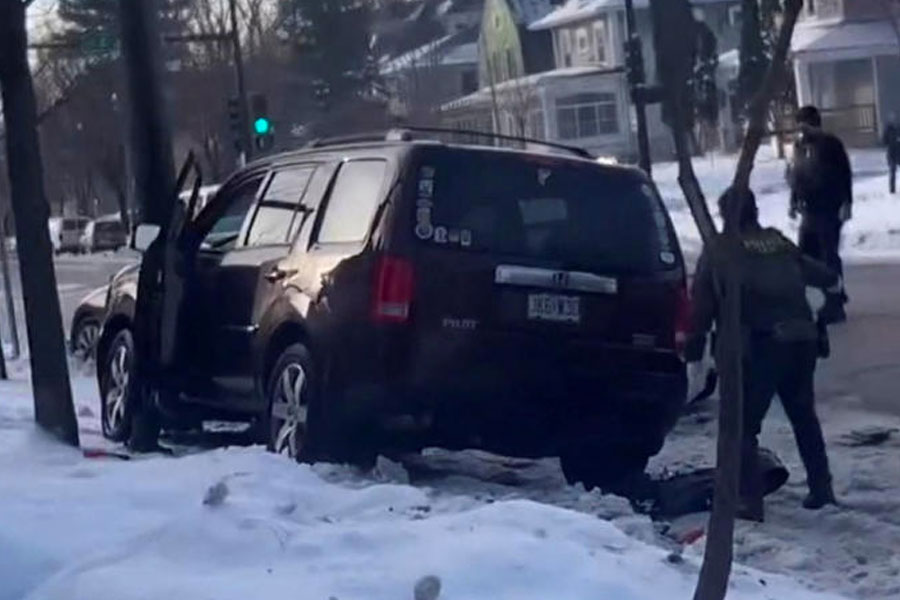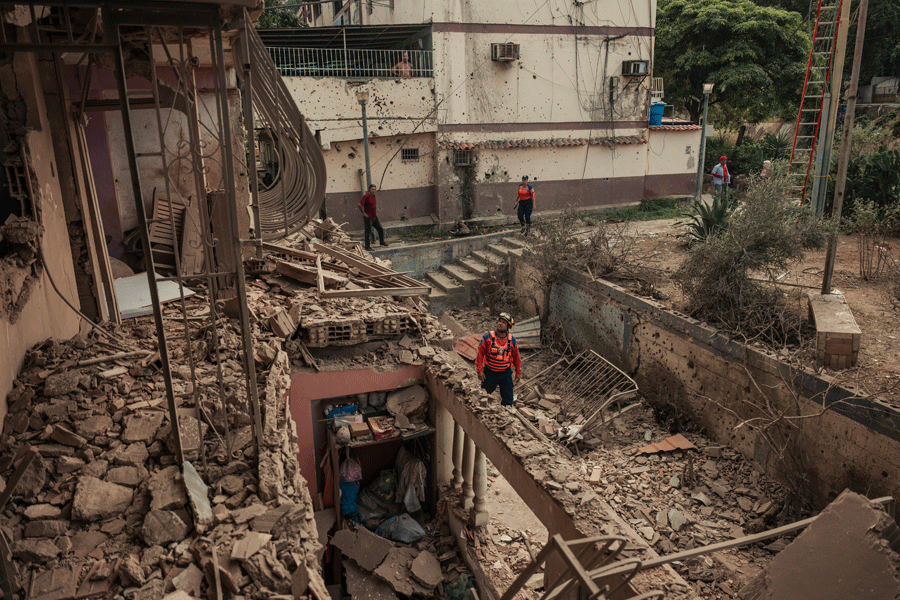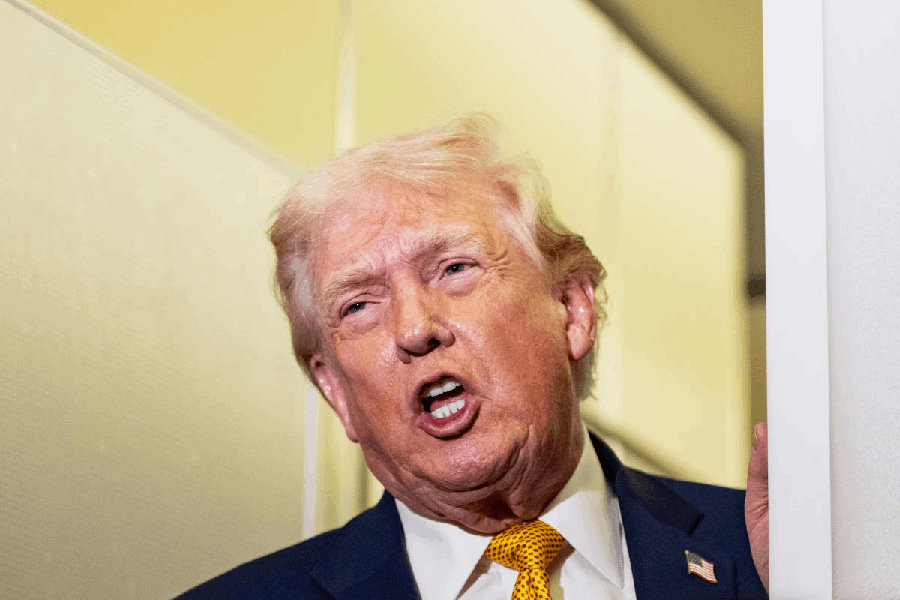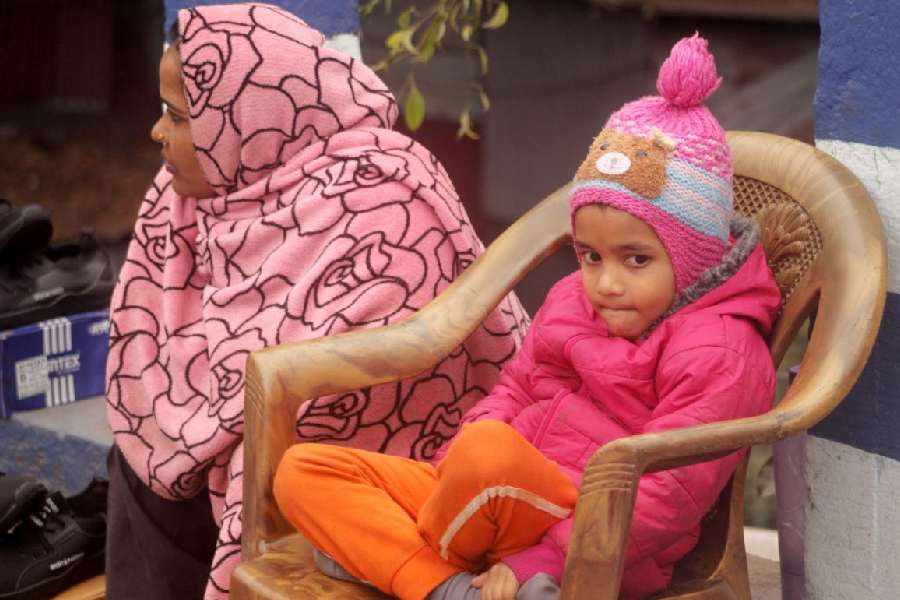
Anyone who follows the news - even half-heartedly - will know how frequently doctors are attacked by families of patients. Accusations range from indifference to incompetence to greed. Such is the escalating mistrust for doctors that this year, an asur at a Puja pandal in central Calcutta was fashioned in the image of a doctor - right down to a white coat and stethoscope around its neck. Eventually, peace was brokered.
One school of thought suggests that while hospital assaults have much to do with medical negligence, a significant bit devolves from the fact that doctors here have abysmal to zero communication skills.
"We have as a society continued to focus on the skilling up, while in the entire Western world today, communication skill is the standard of care," says Diptendra Sarkar, a surgical oncologist and breast surgeon who has practiced in both set-ups.
We are sitting in his office at Calcutta's IPGMER and SSKM Hospital, where he is a professor with the department of breast cancer. In 2011, when Pradip Mitra was the director of IPGMER, he made a communications course mandatory for students. Today, an MBBS student has to clear this test before internship and after obtaining the medical degree. "IPGMER is the first place in India to institutionalise this," says Sarkar who conceived and structured the course.
Sarkar talks about the need for doctors to get into the skin of patient's kin and channelise empathy into thought and word, alongside deed. At lectures and workshops he talks ad nauseum about the distress of a patient. How the distress of the critically ill and his family is different from that of one who has been waiting at the OPD, which in turn is different from one who has not received proper medical attention, to one who has experienced the sudden death of a loved one. "It is crucial to impinge on doctors and doctors-to-be that people who come to them are in distress, and in distress the reactions are never normal."
It all ties in. A doctor who is sensitive to the distress will try to present a case outline that is as humane as accurate. He will also work to secure a really informed consent instead of a routine one. "Even if it is something like an appendicitis removal that is considered very basic, you have to outline the scenario," says Sarkar. Because even basic surgery has its risks.
He talks about something he observed and learnt as a young doctor in the United Kingdom - the power of words. He recounts one such scene.
Morning. Patient Lady goes to the radiologist who tells her there is "bad news", her tests are positive, and "unfortunately" she has been detected with cancer. Patient Lady starts weeping inconsolably, which is when the radiologist redirects her to the nurse. Afternoon. Patient Lady goes to meet the surgeon. Sarkar quotes from memory. "Ms X, there is good news for you. You have been detected with a cancer that is so small that treating it will be like vaccinating you..."
Point established.
But can one be tutored in empathy? Apparently yes. "In the last 10 years in the West, it has been made mandatory for medical students to pass a communication skill test before starting practice. If someone doesn't clear it, whatever be the medical skills, one doesn't get a pass certificate," says Sarkar.
These communication tests are conducted in the presence of two examiners, a doctor and a non-medical person, while a professional actor plays patient. The situation and case specifics would have been given to the actor a month in advance. When the candidate enters the room, the actor recreates a medical emergency. The candidate's response is his test.
Sarkar, who is tutor-examiner with the Royal College of Surgeons, Edinburgh, has seen Indians fail at the communication stage.
The scenario in India is vastly changed from what Sarkar was used to, growing up - a time when the neighbourhood GP (general physician) was God. And a very accessible one at that. Sarkar seems to think that part of the doctor-patient communication problem also has to do with the decreased importance of the para or neighbourhood GP and the increasing inaccessibility of the "specialists".
Winding up, he says, "The government should make communication training for doctors mandatory. Today, if we talk to a customer care executive for the most banal of things, there is an almost immediate request for feedback on communication satisfaction. Why should doctors be exempt?"
They too are there to provide care.
TALK THE WALK
What the communication course at IPGMER focuses on
How to communicate with a terminally ill patient and his or her family
Advice: Become the patient
How to communicate with an OPD patient
Advice: Remember, it is not like waiting in any other queue; here the person is ailing
How to communicate with a patient who has not got proper treatment
Advice: Be as truthful as possible
How to communicate with the kin of a patient who has died suddenly
Advice: Be extremely empathetic, take time and break the bad news to the family after proper sensitisation
How to communicate with patients in general
Advice: Don’t talk down, don’t deprive them of information, don’t assume they know all the scenarios just because you do. While dealing with the elderly, don’t patronise — they have grown old, but they have not grown stupid.


